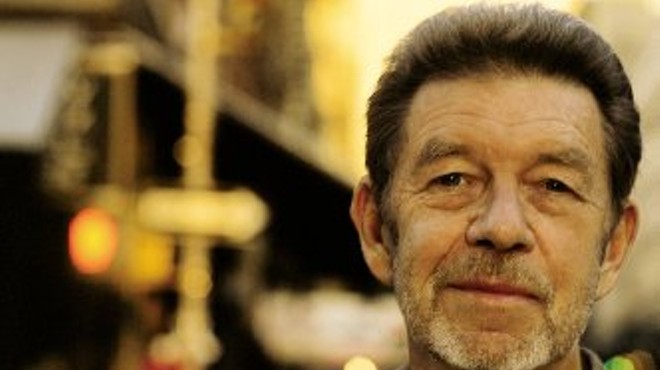Tuesday, September 4, 2012
Let's Read an Excerpt From the New David Foster Wallace Biography
David Foster Wallace, the late writer of Infinite Jest and The Broom of the System and a University of Arizona alum, influenced a generation of writers with his hilarious, intelligent, dripping-with-irony-and-footnotes writing style.
But, as has been documented at length, Wallace fought depression and anxiety for 20 years, eventually succumbing in 2008 when he hanged himself in his California home.
Today, The New Yorker published an excerpt from a new David Foster Wallace Biography, Every Love Story Is a Ghost Story, written by New Yorker staff writer D.T. Max, which drops in as Wallace begins treatment at Granada House, a rehabilitation and treatment center in Massachusetts, not long following his first suicide attempt and in the midst of alcohol addiction.
If Wallace found himself in unfamiliar territory, the residents didn’t know what to make of him either. One remembers wondering, “This guy can probably go to Betty Ford. Why’s he here with us welfare babies?” No one really cared for his cleverness. He was to them a type they’d seen before, someone who, like the character Geoffrey Day in “Infinite Jest,” tries to “erect Denial-type fortifications with some kind of intellectualish showing-off.” Wallace was back in high school, trying to figure out his place in the pack. “It’s a rough crowd,” he wrote Rich C., “and sometimes I’m scared or feel superior or both.” Yet a piece of him was beginning to adjust to the new situation. He remembered his last failed attempt to get sober and how he was no longer writing and asked himself what he had to lose. He came to understand that the key this time was modesty. “My best thinking got me here” was a recovery adage that hit home, or, as he translated it in “Infinite Jest,” “logical validity is not a guarantee of truth.” He knew it was imperative to abandon the sense of himself as the smartest person in the room, a person too smart to be like one of the people in the room, because he was one of the people in the room. “I try hard to listen and do what [they say],” he wrote Rich C., “I’m trying to do it easy … this time,” not “get an A+…. I just don’t have enough gas right now to do anything fast or well. I’m trying to accept this.”
To read the rest of the excerpt, see David Foster Wallace in Recovery: An Excerpt From the New Biography at NewYorker.com.
Tags: David Foster Wallace , New Yorker , D.T. Max , books














